-
 Bitcoin
Bitcoin $90,752.5471
4.27% -
 Ethereum
Ethereum $1,688.3053
6.41% -
 Tether USDt
Tether USDt $1.0006
0.08% -
 XRP
XRP $2.1453
3.23% -
 BNB
BNB $607.1447
1.71% -
 Solana
Solana $144.2444
7.14% -
 USDC
USDC $0.9997
-0.01% -
 Dogecoin
Dogecoin $0.1703
8.31% -
 TRON
TRON $0.2467
1.46% -
 Cardano
Cardano $0.6557
5.58% -
 Chainlink
Chainlink $13.7511
5.08% -
 Avalanche
Avalanche $21.5976
7.79% -
 UNUS SED LEO
UNUS SED LEO $8.9863
-1.47% -
 Stellar
Stellar $0.2566
1.55% -
 Sui
Sui $2.3975
10.43% -
 Shiba Inu
Shiba Inu $0.0...01300
5.63% -
 Toncoin
Toncoin $2.9806
2.64% -
 Hedera
Hedera $0.1760
4.31% -
 Bitcoin Cash
Bitcoin Cash $355.4488
3.40% -
 Litecoin
Litecoin $82.9174
5.86% -
 Hyperliquid
Hyperliquid $18.6132
6.14% -
 Polkadot
Polkadot $3.8737
1.18% -
 Dai
Dai $0.9998
0.01% -
 Bitget Token
Bitget Token $4.5191
1.97% -
 Ethena USDe
Ethena USDe $0.9996
0.04% -
 Pi
Pi $0.6386
1.01% -
 Monero
Monero $220.4697
3.17% -
 Pepe
Pepe $0.0...08356
7.90% -
 Uniswap
Uniswap $5.5839
5.52% -
 Aptos
Aptos $5.0800
1.52%
How to choose blockchain technology suitable for NFT platform?
Choosing the right blockchain for an NFT platform involves evaluating scalability, fees, smart contracts, community support, and compatibility to ensure optimal performance and user experience.
Apr 21, 2025 at 11:29 pm

Choosing the right blockchain technology for an NFT platform is crucial as it impacts the platform's performance, security, and user experience. The selection process involves evaluating several key factors such as scalability, transaction fees, smart contract capabilities, community support, and ecosystem compatibility. This article will guide you through the process of choosing a suitable blockchain for your NFT platform, addressing each factor in detail.
Understanding the Needs of Your NFT Platform
Before diving into the selection of blockchain technology, it's essential to understand the specific needs of your NFT platform. Consider the type of NFTs you plan to support, the expected user base, and the desired user experience. For instance, if your platform will focus on high-resolution digital art NFTs, you'll need a blockchain that supports large file sizes and has low transaction fees to encourage frequent trading.
Evaluating Scalability
Scalability is a critical factor when choosing a blockchain for your NFT platform. High scalability ensures that your platform can handle a large number of transactions without significant delays. Some blockchains, like Ethereum, have faced scalability issues in the past, leading to high gas fees and slow transaction times. Alternatives like Polygon (MATIC) and Solana offer higher throughput and lower costs, making them attractive options for NFT platforms.
- Polygon (MATIC): Known for its layer-2 scaling solution, Polygon offers fast and inexpensive transactions, making it a popular choice for NFT platforms.
- Solana: With its high throughput and low transaction costs, Solana is another blockchain that has gained traction in the NFT space.
Assessing Transaction Fees
Transaction fees directly impact the user experience on your NFT platform. High fees can deter users from minting or trading NFTs, while low fees can encourage more activity. Ethereum, for instance, has been criticized for its high gas fees, especially during peak times. In contrast, blockchains like Binance Smart Chain (BSC) and Flow offer significantly lower transaction fees, making them more appealing for NFT platforms.
- Binance Smart Chain (BSC): Known for its low transaction fees and compatibility with Ethereum's smart contracts, BSC is a viable option for NFT platforms looking to reduce costs.
- Flow: Designed specifically for consumer applications, Flow offers low transaction fees and is used by popular NFT platforms like NBA Top Shot.
Smart Contract Capabilities
Smart contracts are the backbone of NFT platforms, enabling the creation, management, and trading of NFTs. The chosen blockchain must support robust smart contract functionality. Ethereum is widely recognized for its mature smart contract ecosystem, but other blockchains like Tezos and Cardano also offer advanced smart contract capabilities.
- Tezos: Known for its self-amending blockchain, Tezos allows for easy upgrades to smart contracts, which can be beneficial for NFT platforms looking to evolve over time.
- Cardano: With its focus on security and scalability, Cardano's smart contract platform, Plutus, is gaining attention in the NFT space.
Community Support and Ecosystem
A strong community and a thriving ecosystem can significantly enhance the success of your NFT platform. Blockchains with active developer communities and a wide range of tools and services can provide better support and resources for your platform. Ethereum, for example, has a vast ecosystem with numerous tools and marketplaces dedicated to NFTs. Similarly, Polkadot and Avalanche are building robust ecosystems that could be beneficial for NFT platforms.
- Polkadot: Known for its interoperability, Polkadot allows for the seamless integration of different blockchains, which can be advantageous for NFT platforms looking to connect with various ecosystems.
- Avalanche: With its focus on scalability and a growing ecosystem, Avalanche is becoming a popular choice for NFT platforms seeking high performance and community support.
Compatibility with Existing Infrastructure
Compatibility with existing infrastructure is another important consideration when choosing a blockchain for your NFT platform. If your platform already uses certain tools or services, you'll want to ensure that the chosen blockchain is compatible with them. For instance, if your platform is built on Ethereum, you might consider using Ethereum sidechains or layer-2 solutions to improve scalability and reduce costs without migrating to a completely different blockchain.
- Ethereum Sidechains: Solutions like Polygon (MATIC) and xDai are Ethereum-compatible and can be integrated seamlessly with existing Ethereum-based infrastructure.
- Layer-2 Solutions: Technologies like Optimism and Arbitrum allow for faster and cheaper transactions on Ethereum, making them suitable for NFT platforms looking to enhance performance.
Security and Reliability
Security is paramount for any blockchain, especially for NFT platforms that handle valuable digital assets. The chosen blockchain must have a strong track record of security and reliability. Ethereum, for example, has a well-established security framework, but other blockchains like Algorand and Hedera Hashgraph also offer high levels of security and reliability.
- Algorand: Known for its pure proof-of-stake consensus mechanism, Algorand offers high security and instant finality, making it a reliable choice for NFT platforms.
- Hedera Hashgraph: With its unique consensus algorithm, Hedera Hashgraph provides high throughput and strong security, which can be beneficial for NFT platforms.
Frequently Asked Questions
Q: Can I switch blockchains after launching my NFT platform?
Yes, it is possible to switch blockchains after launching your NFT platform, but it can be challenging and may require significant technical effort. You'll need to migrate your smart contracts, data, and users to the new blockchain, which can be complex and time-consuming. It's best to carefully evaluate your options before launching to avoid the need for a switch later.
Q: How do I ensure my NFT platform is compatible with multiple blockchains?
To ensure compatibility with multiple blockchains, you can use interoperability solutions like Polkadot or Cosmos. These platforms allow for the seamless integration of different blockchains, enabling your NFT platform to operate across multiple networks. Additionally, using standardized protocols like ERC-721 for Ethereum-based NFTs can help maintain compatibility across different blockchains.
Q: What are the risks associated with choosing a less popular blockchain for my NFT platform?
Choosing a less popular blockchain can come with several risks, including lower liquidity, fewer tools and services, and a smaller community for support. Additionally, less popular blockchains may face security vulnerabilities or scalability issues that could impact your platform's performance. It's essential to weigh these risks against the potential benefits, such as lower transaction fees or unique features offered by the blockchain.
Q: How can I test the performance of different blockchains before making a final decision?
To test the performance of different blockchains, you can set up testnets or use existing test environments provided by the blockchain. Deploy your smart contracts and simulate transactions to assess factors like transaction speed, fees, and scalability. Engaging with the blockchain's developer community and seeking feedback from other projects can also provide valuable insights into the blockchain's performance and suitability for your NFT platform.
Disclaimer:info@kdj.com
The information provided is not trading advice. kdj.com does not assume any responsibility for any investments made based on the information provided in this article. Cryptocurrencies are highly volatile and it is highly recommended that you invest with caution after thorough research!
If you believe that the content used on this website infringes your copyright, please contact us immediately (info@kdj.com) and we will delete it promptly.
- Bitcoin (BTC) Price Surges to Two-Week High, Breaking Above $90,000
- 2025-04-23 01:00:12
- Popcat (POP) Price Soars Over 20% As Investors Rush To Buy The Meme Coin
- 2025-04-23 01:00:12
- Bitcoin (BTC) hits six-week highs as US trade war tensions embolden crypto bulls
- 2025-04-23 00:55:12
- An Encouraging Situation for Polygon
- 2025-04-23 00:55:12
- The European Central Bank (ECB) is the alarm about President Trump's policy
- 2025-04-23 00:50:12
- SUBBD Token Aims to Disrupt the $85000000000 Content Creation Market by Targeting OnlyFans
- 2025-04-23 00:50:12
Related knowledge
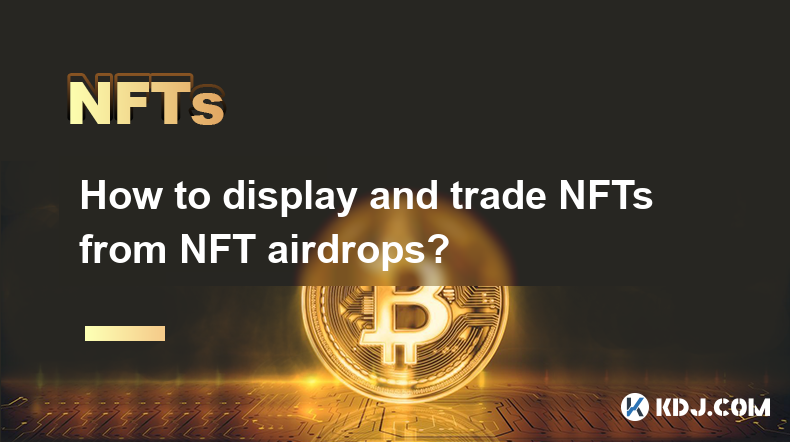
How to display and trade NFTs from NFT airdrops?
Apr 18,2025 at 04:42am
How to Display and Trade NFTs from NFT Airdrops? NFT airdrops have become a popular way for projects to distribute their tokens and engage with their community. If you've received NFTs through an airdrop, you might be wondering how to display and trade them. This article will guide you through the process step-by-step, ensuring you can showcase your NFT...
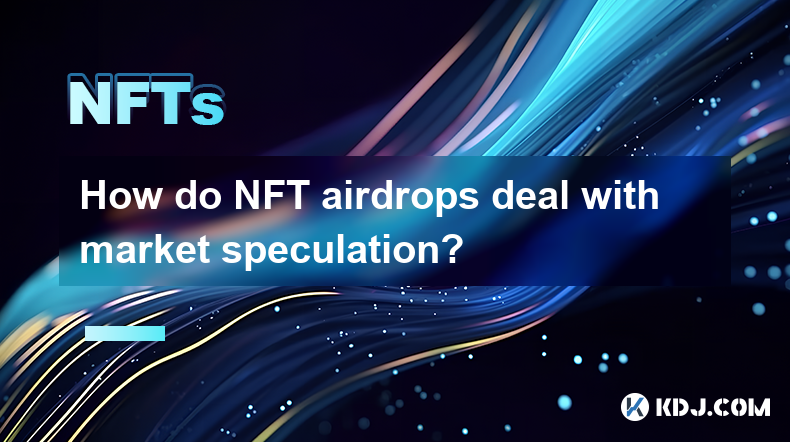
How do NFT airdrops deal with market speculation?
Apr 20,2025 at 10:28pm
NFT airdrops have become a significant phenomenon in the cryptocurrency space, often used as a marketing tool to distribute tokens or digital assets to a wide audience. However, they also introduce elements of market speculation that can impact the value and perception of NFTs. This article explores how NFT airdrops deal with market speculation, delving...
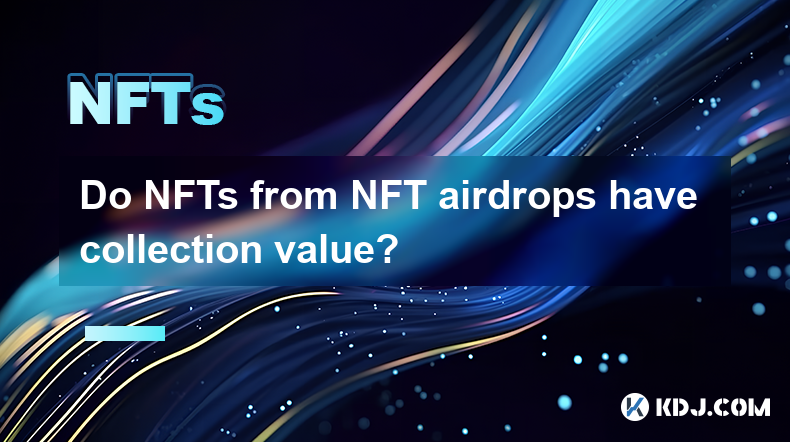
Do NFTs from NFT airdrops have collection value?
Apr 18,2025 at 11:49pm
NFTs, or non-fungible tokens, have become a significant part of the cryptocurrency ecosystem, and NFT airdrops are one way for projects to distribute these digital assets to their community. A common question that arises is whether NFTs received from airdrops have any collection value. To answer this question, we need to delve into various aspects of NF...
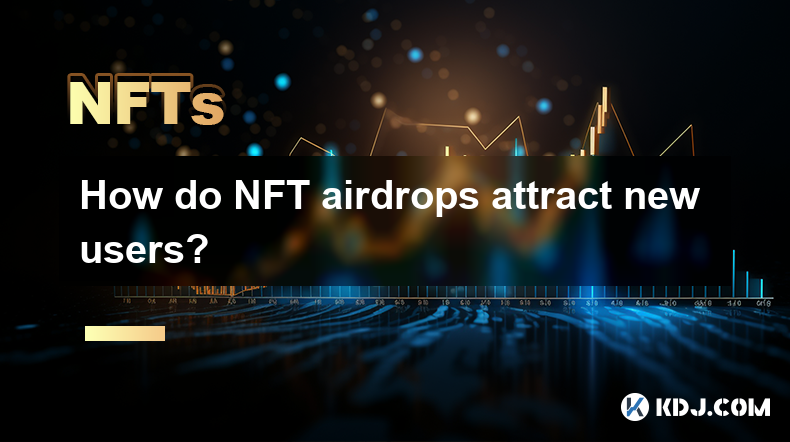
How do NFT airdrops attract new users?
Apr 21,2025 at 07:21am
NFT airdrops have become a popular strategy within the cryptocurrency community to attract new users and engage existing ones. By distributing free NFTs to a targeted audience, projects can create buzz, increase visibility, and foster a sense of community. This method leverages the allure of free digital assets to draw in participants who might not have...
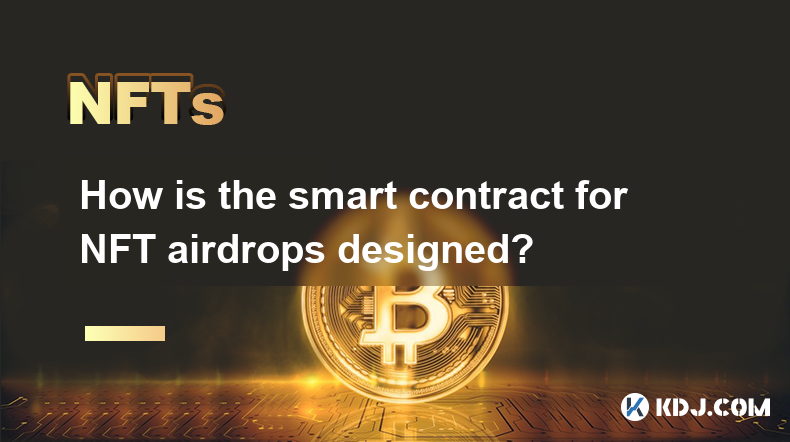
How is the smart contract for NFT airdrops designed?
Apr 18,2025 at 03:10am
The design of a smart contract for NFT airdrops is a complex process that requires careful consideration of various factors to ensure the airdrop is executed smoothly and securely. This article will delve into the intricacies of how such a smart contract is designed, focusing on key components, security measures, and the implementation process. Key Comp...

Will NFT airdrops affect the market value of NFT?
Apr 22,2025 at 06:56am
The impact of NFT airdrops on the market value of NFTs is a topic of significant interest within the cryptocurrency and digital asset community. NFT airdrops, where creators or platforms distribute free NFTs to a targeted group of recipients, can have various effects on the market value of NFTs. This article delves into the different ways NFT airdrops c...

How to display and trade NFTs from NFT airdrops?
Apr 18,2025 at 04:42am
How to Display and Trade NFTs from NFT Airdrops? NFT airdrops have become a popular way for projects to distribute their tokens and engage with their community. If you've received NFTs through an airdrop, you might be wondering how to display and trade them. This article will guide you through the process step-by-step, ensuring you can showcase your NFT...

How do NFT airdrops deal with market speculation?
Apr 20,2025 at 10:28pm
NFT airdrops have become a significant phenomenon in the cryptocurrency space, often used as a marketing tool to distribute tokens or digital assets to a wide audience. However, they also introduce elements of market speculation that can impact the value and perception of NFTs. This article explores how NFT airdrops deal with market speculation, delving...

Do NFTs from NFT airdrops have collection value?
Apr 18,2025 at 11:49pm
NFTs, or non-fungible tokens, have become a significant part of the cryptocurrency ecosystem, and NFT airdrops are one way for projects to distribute these digital assets to their community. A common question that arises is whether NFTs received from airdrops have any collection value. To answer this question, we need to delve into various aspects of NF...

How do NFT airdrops attract new users?
Apr 21,2025 at 07:21am
NFT airdrops have become a popular strategy within the cryptocurrency community to attract new users and engage existing ones. By distributing free NFTs to a targeted audience, projects can create buzz, increase visibility, and foster a sense of community. This method leverages the allure of free digital assets to draw in participants who might not have...

How is the smart contract for NFT airdrops designed?
Apr 18,2025 at 03:10am
The design of a smart contract for NFT airdrops is a complex process that requires careful consideration of various factors to ensure the airdrop is executed smoothly and securely. This article will delve into the intricacies of how such a smart contract is designed, focusing on key components, security measures, and the implementation process. Key Comp...

Will NFT airdrops affect the market value of NFT?
Apr 22,2025 at 06:56am
The impact of NFT airdrops on the market value of NFTs is a topic of significant interest within the cryptocurrency and digital asset community. NFT airdrops, where creators or platforms distribute free NFTs to a targeted group of recipients, can have various effects on the market value of NFTs. This article delves into the different ways NFT airdrops c...
See all articles























































































